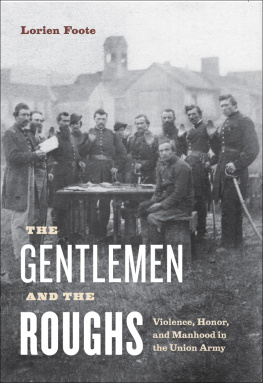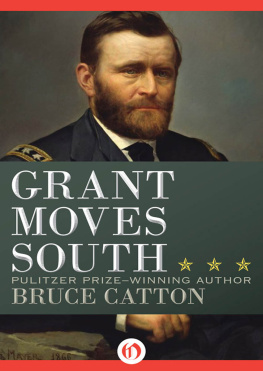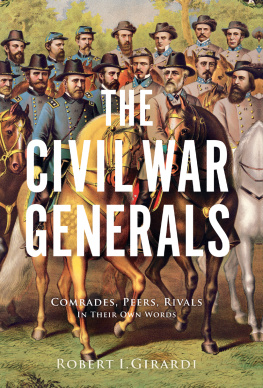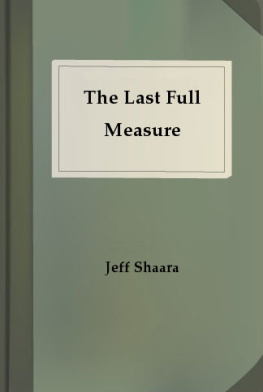VICTORS IN BLUE
MODERN WAR STUDIES
Theodore A. Wilson
General Editor
Raymond Callahan
Jacob W. Kipp
Allan R. Millett
Carol Reardon
Dennis Showalter
David R. Stone
James H. Willbanks
Series Editors
VICTORS IN BLUE
How Union Generals Fought the Confederates, Battled Each Other, and Won the Civil War
Albert Castel with Brooks D. Simpson
Maps by George Skoch
University Press of Kansas
2011 by the University Press of Kansas
All rights reserved
Published by the University Press of Kansas (Lawrence, Kansas 66045 ), which was organized by the Kansas Board of Regents and is operated and funded by Emporia State University, Fort Hays State University, Kansas State University, Pittsburg State University, the University of Kansas, and Wichita State University
Library of Congress Cataloging-in-Publication Data
Castel, Albert E.
Victors in blue : how Union generals fought the Confederates, battled each other, and won the Civil
War / Albert Castel with Brooks D. Simpson.
p. cm. (Modern war studies)
Includes bibliographical references and index.
ISBN 978-0-7006-1793-7 (cloth : alk. paper)
ISBN 978-0-7006-2141-5 (pbk. : alk. paper)
ISBN 978-0-7006-2178-1 (ebook)
. United States HistoryCivil War, 18611865 Campaigns.
. GeneralsUnited States Historyth century.. Command of troopsHistoryth century.. United States. ArmyHistoryCivil War, 18611865 .
I. Simpson, Brooks D. II. Title.
E470.C25 2011
973.73 dc
2011029923
British Library Cataloguing-in-Publication Data is available.
Printed in the United States of America
10 9 8 7 6 5 4 3 2 1
The paper used in this publication is recycled and contains percent postconsumer waste. It is acid free and meets the minimum requirements of the American National Standard for Permanence of Paper for Printed
Library Materials Z39.48-1992 .
TO GEORGE ANN CASTEL MY POOCHIE
19332010
A long war produces upon a democratic army the same effects that a revolution produces upon a people; it breaks through regulations, and allows extraordinary men to rise above the common level. Those officers whose bodies and minds have grown old in peace, are removed, or superannuated, or they die. In their stead, a host of young men are pressing on.... They are bent on advancement at all hazards, and perpetual advancement.
Alexis de Tocqueville, Democracy in America, 1840
I have only just now found out what military jealousy is.
Abraham Lincoln, September 5, 1862
Contents
MAPS AND ILLUSTRATIONS
Maps
Illustrations
PREFACE
This books purpose is threefold. First, it describes succinctly the battles and/or campaigns that contributed decisively to Union victory in the Civil War and explains how they did so. Second, it examines the performances of the generals who achieved these victoriesthe victors in bluewith a view to judging the quality of their generalship. And third, when pertinent, it takes note of what might be termed the war within a war that occurred among the top Union generals and how it affected their conduct of military operations.
With the exception of the very first, all of the campaigns and consequent battles discussed herein have been the subject of many booksin some instances perhaps too many. Hence, what follows usually offers little new by way of facts, and if some of the analyses seem somewhat original, even heretical, as a rule they merely restate views expressed long ago but which have become buried beneath the ever-accumulating historical silt deposited by subsequent chroniclers of the American Iliad. All I have endeavored to do, when deemed appropriate, is excavate and present these views in a more objective fashion supported by greater documentationan exercise, if you will, in interpretative archeology.
The closest this book comes to exploring some hitherto uncharted historical terrain is when it deals with the aspirations of the generals who comprise its main cast of characters and how they endeavored to attain them. All of them possessed superior personal qualities, albeit of different kinds and degrees, and all were West Pointers who found in the Civil War a once-in-a-lifetime opportunity to ascend the ladder of military rank, power, and glory, thereby realizing ambitions far transcending their prewar professional expectationssupposing they still retained any. They also recognized, once hostilities began and they achieved some measure of success on the battlefield, that extremely few of them would be able to reach the top rungs of that ladder. Only one of them would become commander of the whole army and from there rise to the only place higher still. Such being the case, intense and sometimes vicious rivalries were bound to occur among them, and so they didrivalries complicated by the presence in the army of high-ranking nonWest Pointers with political wagons attached to the stars on their shoulders. This competition had profound consequences for both their careers and the course of the war, as shall be demonstrated in ensuing pages.
To repeat in order to emphasize, none of the interpretations contained in this book is truly original. Yet some are likely to be found novel, even outrageous. I, of course, hope for agreement, the more the merrier, but I am prepared for disagreement, mayhap vehement. Indeed, I shall welcome it: passionate dissent is preferable to passive indifference.
The first thirteen chapters reflect my views on the subject matter therein discussed. For the final five chapters, I have had some assistance from a once-young historian, Brooks D. Simpson, who is not above having opinions of his own. Occasionally, Simpson persuaded me that I should reconsider some of my own views, and at other times we found ourselves in agreement, perhaps to the surprise of one or both of us. However, when we have disagreed, the views expressed in the book remain mine. Simpson can write his own book to clear his name.
Prologue
On Judging Civil War Generals
The Norths immense advantage in manpower , manufacturing, material, and money made its victory in the Civil War possible but not inevitable. Factors other than sheer strength determine the outcomes of wars. Chief among them is quality of military leadership. Sufficient superiority in the skill of its army commanders would have more than compensated for the Confederacys inferiority in everything else except the courage of its soldiers. It was not the legions, spake Napoleon, which crossed the Rubicon, but Caesar.
The Confederates could have realized command superiority in two ways, one positive, the other negative. The positive way would have been for their top generals to have been so outstanding that their Union counterparts, even if competent, still would have lost more battles than they won, especially the decisive ones. Unfortunately for them, they produced only one such generalRobert E. Lee. Thanks mainly to him they did have three opportunities, potential at least, to win the war and their independence: () In the early fall of 1862 , when Lee, following his victories near Richmond and at Second Manassas, invaded Maryland; () in the summer of 1863 when Lee, having defeated a Federal army twice the size of his own at Chancellorsville, marched into Pennsylvania; and () as autumn approached in 1864 , with Lee having fought Grant to a standstill in Virginia, inflicting such heavy losses on his army that Northern morale plummeted and Lincoln despaired of victory both in the upcoming presidential election and in the war.







